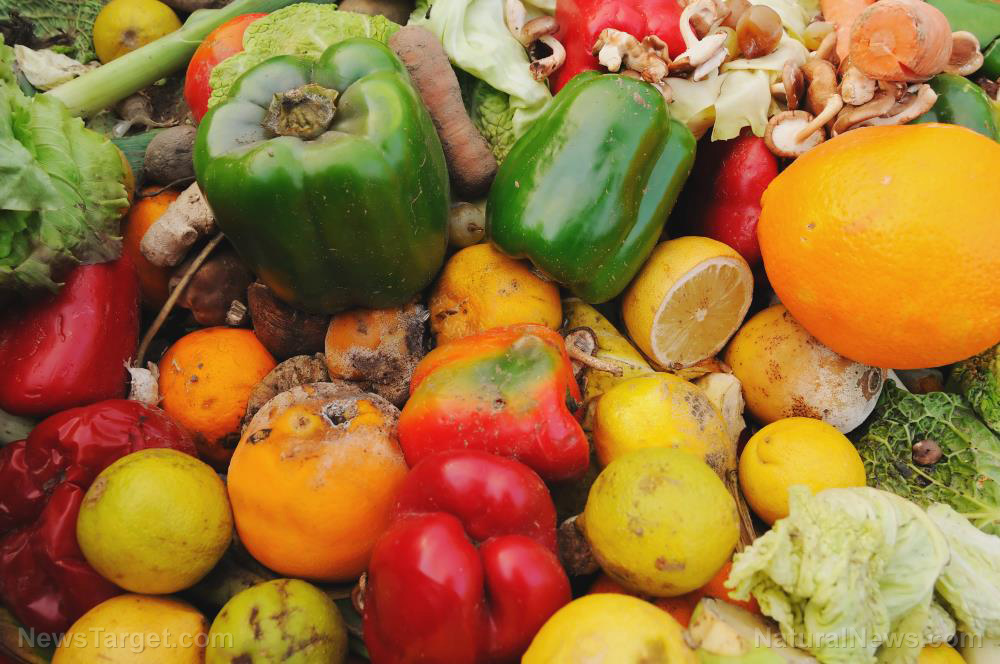Some people who think they have food allergies may actually have a food intolerance
05/07/2019 / By Zoey Sky

Does eating certain foods trigger symptoms like gas or diarrhea in you?
According to a study published in the journal JAMA Network Open, you may think you have a food allergy, but what you actually have may be food intolerance.
Both conditions are legitimate, but unless you experience the symptoms associated with a food allergy, you could be falsely self-diagnosing your condition.
What’s the difference between a food allergy and food intolerance?
Food intolerance, which is also called food sensitivity, occurs when you have difficulty digesting a certain kind of food. This may cause symptoms like abdominal pain, diarrhea, or intestinal gas.
People usually confuse or mislabel a food intolerance as a food allergy. The former involves your digestive system.
Food allergies, on the other hand, involve the immune system.
If you have a food allergy, even a microscopic amount of the food can cause anaphylaxis, a severe or life-threatening reaction caused by allergies.
In the study, researchers discovered that one in 10 people in the U.S. is afflicted with food allergies. But more than twice that number falsely believe that they have food allergies.
The research team surveyed over 40,000 adults living across the country and found that at least 10 percent of the them were allergic to one or more foods.
However, they also discovered that 19 percent of the volunteers reported that they were allergic to certain foods despite not experiencing the physical symptoms associated with a genuine food allergy.
Some people do have food allergies, which can potentially be life-threatening. But those who self-diagnose as food allergic without consulting a medical professional could be misinterpreting their symptoms as an allergic reaction, advised the researchers.
Dr. Ruchi Gupta, lead author of the study and professor of pediatrics at Northwestern University Feinberg School of Medicine in Illinois, explained that for misdiagnosed cases, people could be experiencing the signs of food intolerance or other food-related conditions instead of an allergic response.
According to the Centers for Disease Control and Prevention (CDC), allergic reactions are your immune system’s response to something that it considers a threat. When people with food allergies consume a certain type of food like dairy, nuts, shellfish, or wheat, it sends an alarm signal to their immune system. This signal then causes reactions that may vary depending on the person.
Food allergy symptoms may include hives, itching, swelling in the nose and throat, and nausea or stomach pain. In severe cases, food allergies cause anaphylaxis, a state of shock that is accompanied by low blood pressure and constricted airways. When left untreated, anaphylaxis can be fatal. (Related: Do you feel exhausted or mentally fuzzy after eating a meal? Your diet may be the problem.)
The study also revealed that allergy to shellfish, the most common food allergen in the U.S., affects about seven million adults. Milk and peanut allergies both affect about five million individuals. Other common allergens include eggs, fish, sesame, soy, tree nuts, and wheat.
People can inherit or acquire allergies. In rare cases, organ recipients may acquire allergies from donors.
Data from their surveys suggest that at least 48 percent of the participants who had food allergies first experienced at least one of them as an adult. Gupta and the other researchers expressed their surprise at discovering that adult-onset food allergies were so common.
He shared that if people think they have a food allergy, they must consult a health care provider for testing and diagnosis before they try to correct the problem by eliminating foods from their diet.
Gupta concluded that once a food allergy is confirmed, people must fully understand how to manage their condition. It is important to recognize the symptoms of anaphylaxis and how and when to use epinephrine.
Sources include:
Tagged Under: #nutrition, adult-onset food allergies, allergies, anaphylaxis, diet, digestive system, food allergens, food allergy, food intolerance, food sensitivity, immune system


















